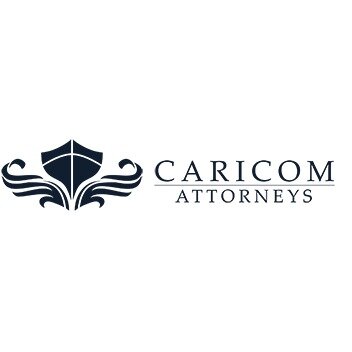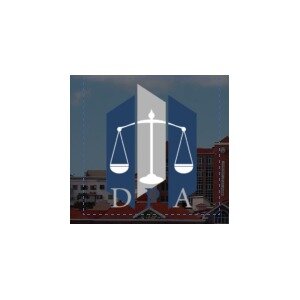Best Energy Regulatory Law Lawyers in Grenada
Share your needs with us, get contacted by law firms.
Free. Takes 2 min.
Or refine your search by selecting a city:
List of the best lawyers in Grenada
About Energy Regulatory Law in Grenada
Energy Regulatory Law in Grenada encompasses the rules, regulations, and policies governing the generation, distribution, transmission, and consumption of energy within the country. Primarily, it deals with ensuring reliable, affordable, and sustainable energy supplies while balancing public interests, environmental considerations, and market competitiveness. With Grenada’s focus on renewable energy, efficient electricity regulation, and compliance with regional energy initiatives, this area of law is increasingly significant for individuals, businesses, and investors alike.
Why You May Need a Lawyer
Engaging a lawyer who specializes in Energy Regulatory Law can be essential in a variety of situations. Common scenarios include:
- Negotiating interconnection or power purchase agreements
- Seeking licenses or permits to generate or distribute electricity
- Understanding tariffs, rate-making, and utility charges
- Dealing with regulatory compliance for renewable or conventional energy projects
- Resolving disputes with utility providers or government agencies
- Navigating complex land use or environmental assessments for energy projects
- Participating in public consultations or regulatory hearings
- Interpreting changes to energy legislation or policy
Local Laws Overview
Energy regulation in Grenada is shaped by a combination of national legislation, regulatory bodies, and policy initiatives focused on modernizing the sector. Key components include:
- The Electricity Supply Act, which regulates the generation and supply of electricity, outlines licensing provisions, and describes the powers and duties of utilities.
- The National Energy Policy, emphasizing sustainable development, renewable energy integration, and energy efficiency targets.
- The regulatory and licensing authority is primarily the Ministry of Energy, with oversight from the Public Utilities Regulatory Commission (PURC).
- Environmental and planning laws impact energy projects, mandating specific permits and impact assessments before projects can proceed.
- Energy pricing, consumer rights, and provisions for dispute resolution are governed within these frameworks.
- Grenada is also connected to regional initiatives under Caribbean Community (CARICOM) and participates in regional efforts to harmonize energy standards and regulations.
Frequently Asked Questions
What is the main law governing electricity in Grenada?
The primary legislation is the Electricity Supply Act, which governs the production, distribution, and supply of electricity across the country.
Who regulates energy utilities in Grenada?
Regulation is managed by the Public Utilities Regulatory Commission and the Ministry of Energy, which oversee licensing, compliance, and enforcement.
How can I obtain a license to operate an energy business?
You must apply through the Ministry of Energy, complying with specific application requirements, demonstrating technical capability, and obtaining necessary environmental and planning permits.
Are there incentives for renewable energy projects?
Yes, Grenada offers various incentives for renewable energy investments, including tax breaks, duty concessions, and fast-tracked permitting processes, as part of its commitment to sustainable development.
What rights do consumers have if they experience issues with utility services?
Consumers have the right to file complaints with the utility provider and escalate unresolved issues to the Public Utilities Regulatory Commission for mediation or resolution.
Can foreign companies invest in Grenada’s energy sector?
Yes, foreign entities may invest, subject to meeting licensing, regulatory, and investment requirements as set out by local laws and the national investment policy.
What environmental regulations apply to energy projects?
All significant energy projects require an environmental impact assessment and must adhere to national environmental protection standards before receiving approval.
How are electricity tariffs set in Grenada?
Tariffs are determined through a regulatory process, considering factors such as cost of service, investment in infrastructure, and public consultations, and are approved by the relevant authorities.
What happens if a utility provider breaches its obligations?
The Public Utilities Regulatory Commission has the authority to impose administrative actions, including fines, or ultimately suspend or revoke licenses depending on the severity of the breach.
How can I challenge a regulatory decision related to energy?
Decisions can typically be challenged by filing an appeal or request for review within the stipulated timeframe, first with the regulatory body and, if necessary, through the local courts.
Additional Resources
If you need further information or assistance, the following local resources can be helpful:
- The Ministry of Energy - Responsible for setting energy policy and overseeing licensing
- Public Utilities Regulatory Commission (PURC) - Main regulatory body for energy services
- Grenada Investment Development Corporation (GIDC) - Provides support for investors in Grenada’s energy sector
- Environmental Management Department - Guidance on environmental permitting for energy projects
- Grenada Electricity Services Ltd (GRENLEC) - Main utility and entry point for many stakeholder queries
- National Energy Policy Documents - Available from relevant ministries for public review
Next Steps
If you believe you require legal assistance regarding Energy Regulatory Law in Grenada, consider the following steps:
- Identify the specific issue or question you have relating to energy law
- Gather all relevant documentation, such as contracts, permits, or correspondence
- Contact a qualified Grenadian lawyer who specializes in energy or utility law
- Request an initial consultation to discuss your situation and potential options
- Seek guidance from the Ministry of Energy or the Public Utilities Regulatory Commission if your issue is regulatory in nature
- Continue to monitor any changes in relevant law or policy that may affect your interests
Lawzana helps you find the best lawyers and law firms in Grenada through a curated and pre-screened list of qualified legal professionals. Our platform offers rankings and detailed profiles of attorneys and law firms, allowing you to compare based on practice areas, including Energy Regulatory Law, experience, and client feedback.
Each profile includes a description of the firm's areas of practice, client reviews, team members and partners, year of establishment, spoken languages, office locations, contact information, social media presence, and any published articles or resources. Most firms on our platform speak English and are experienced in both local and international legal matters.
Get a quote from top-rated law firms in Grenada — quickly, securely, and without unnecessary hassle.
Disclaimer:
The information provided on this page is for general informational purposes only and does not constitute legal advice. While we strive to ensure the accuracy and relevance of the content, legal information may change over time, and interpretations of the law can vary. You should always consult with a qualified legal professional for advice specific to your situation.
We disclaim all liability for actions taken or not taken based on the content of this page. If you believe any information is incorrect or outdated, please contact us, and we will review and update it where appropriate.
Browse energy regulatory law law firms by city in Grenada
Refine your search by selecting a city.













